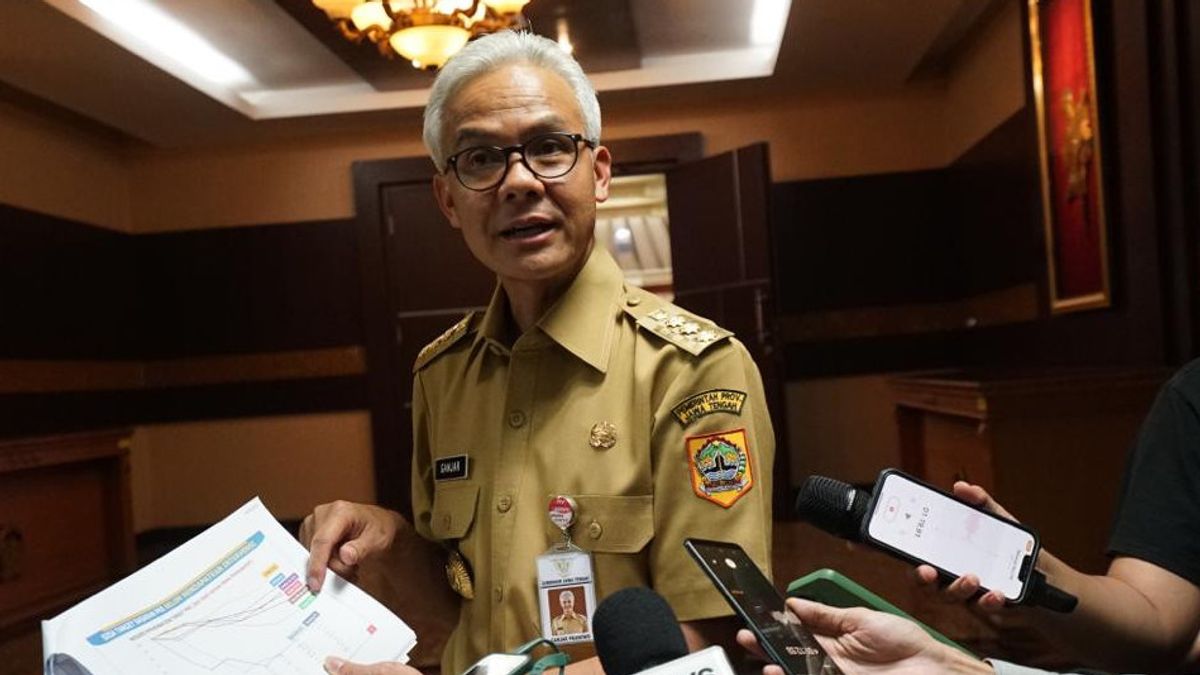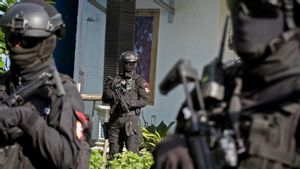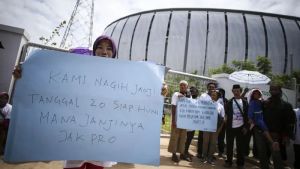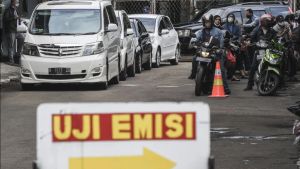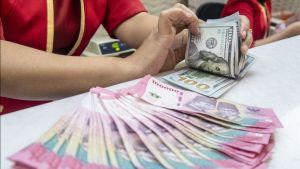The progress of the intervention in handling extreme poverty (PKE) in Central Java shows a good graphic and continues to decline. Central Java Governor Ganjar Pranowo is optimistic that extreme poverty in Central Java in 2024 will be in accordance with President Joko Widodo's target, which is zero percent or close to zero.
"There are still a lot of them, so today we are closing how to reduce our extreme poverty rate. The data is good, we are making extra methods, we are trying extreme intervention," said Ganjar after chairing a PKE intervention meeting with the local government at the Central Java Governor's Office, Monday, August 14.
Ganjar explained, based on the intervention graph of PKE as of August 13, 2023 at 18.00 WIB, the progress is good. From that data, it is known that stunting and disability have been intervened 100 percent. The two clusters are the fastest to intervene. "We can intervene 100 percent of all of them with disabilities, especially for the extreme poor," he explained. The next cluster that has been intervened a lot is the number of non-schools for children in extreme poor families. 10,948 children or 72.1 percent have received intervention. The rest, there are still 4,242 school-age children or 27.9 percent who have not been intervened. "Secondly, the number is not in school. I asked to find this and earlier I found many areas who when they graduated from junior high school or SMK or MAN did not have school. So earlier, whether the school was virtual, whether it was a roof, this is a lot of ways that we have to solve. I suggest that if not, they become foster children, take them to the existing place, then we will "Finish. Whether it's scholarships or mutual cooperation," said Ganjar Pranowo. Furthermore, which shows a good graphic in the progress of PKE intervention in the cluster not working. There are about 23,589 people who have received intervention and are already working. The rest, about 40,089 people are still on the intervention list and will be given training so that they are ready to work. "It doesn't work either. This figure is also good to intervene. Some we train, some we then encourage and help to be able to work in companies, "he explained. The progress of intervention for latrines for extreme poor families also continues to decline in number. Currently, 13,993 houses have latrines. The rest are still around 15,574 houses that must be intervened. "Jamban is also good, the numbers continue to fall. This water source is a bit difficult in some remote areas, so in some areas there were those who said they were looking for 'water shamans'. Whether with technology or people who understand in the village," said Ganjar. Meanwhile, for numbers that are still missing it requires a lot of intervention is RTLH and electricity which according to Ganjar will also continue to be boosted for RTLH. So far, the mutual cooperation carried out shows a good decline graph. As for the need for this electric intervention is also still a lot. Currently, there are 3,283 households that have intervened and there are still around 12,596 households waiting to intervene.
VOIR éGALEMENT:
The English, Chinese, Japanese, Arabic, and French versions are automatically generated by the AI. So there may still be inaccuracies in translating, please always see Indonesian as our main language. (system supported by DigitalSiber.id)
